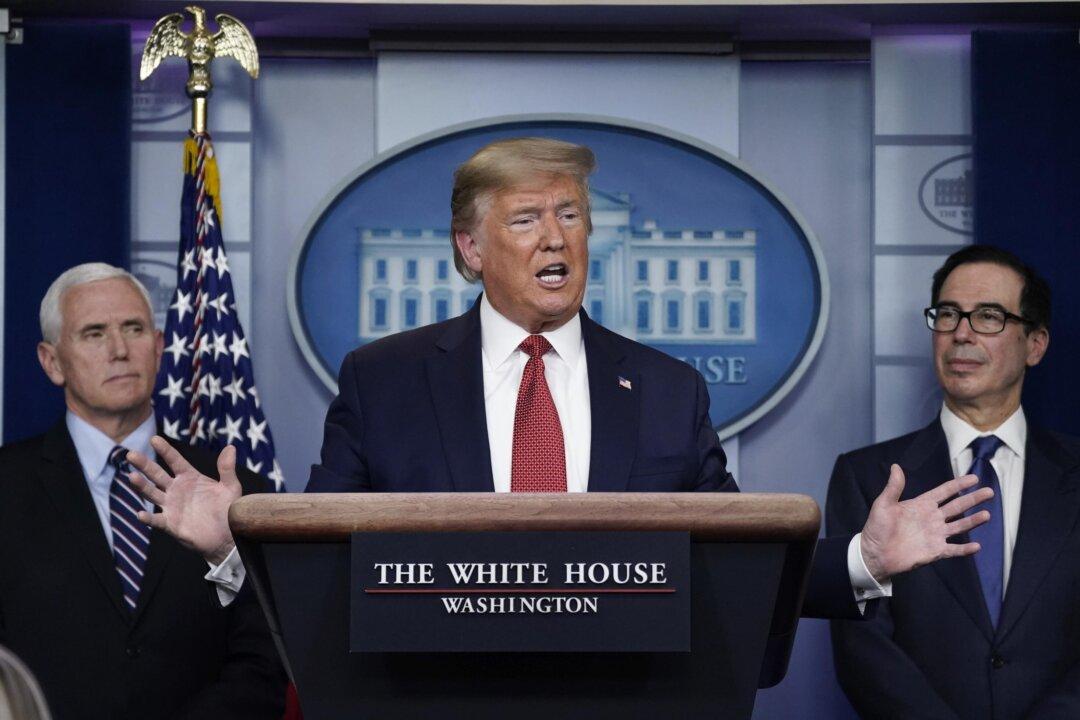Cable and network broadcasters have begun to cut away from President Donald Trump’s daily briefings on the CCP virus epidemic, despite their apparent popularity with Americans.
ABC, CBS, and NBC all covered Trump at the beginning of the March 23 briefing, which began about 6:10 p.m. Washington time. After 20 minutes, they switched to the network evening newscasts, never to return to Trump. The president spoke until shortly after 8 p.m.





